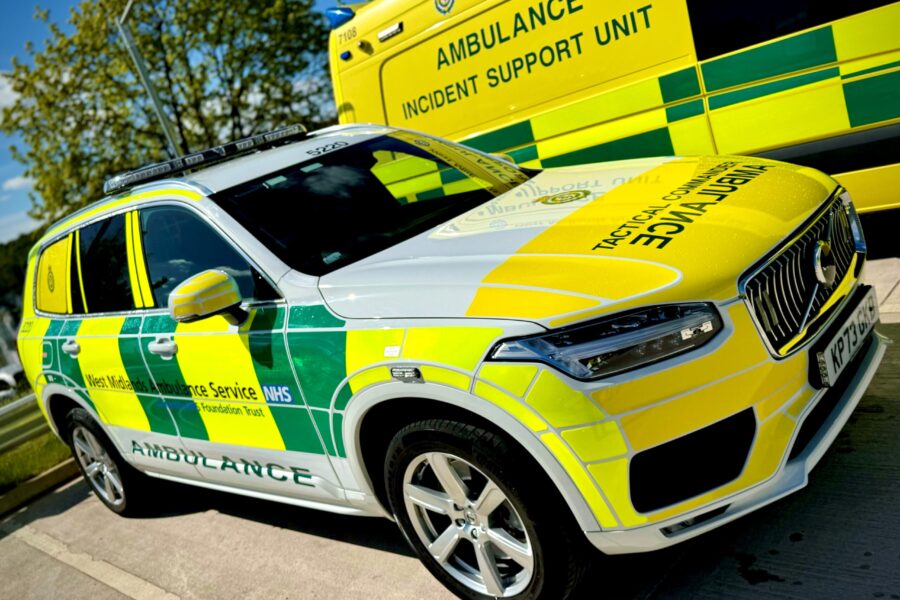
What is Emergency Preparedness?
Emergency Preparedness is a vitally important part of West Midlands Ambulance Service (WMAS). The team deals with the Trust’s planning and response to significant and major incidents as well as providing support for large gatherings such as football matches and festivals.
As a Category 1 responder, West Midlands Ambulance Service is required to comply with Part 1 of the Civil Contingencies Act 2004 which provides a framework for a consistent level of civil protection activity across the UK. Every year, the service is also required to comply with NHS England’s Core Standards which is reviewed and scored against the Emergency Preparedness Resilience and Response (EPRR) Framework. This allows us to provide clear assurance both internally and externally of our ability to respond to emergencies and that all of the planning is current, in date and fit for purpose.
Within this section you’ll find out about the Command and Control capabilities we employ at the scene of high risk and complex emergencies, our specialist team of paramedics who are deployed to the most challenging and difficult situations, the pre-hospital and enhanced care teams we send to provide additional clinical skillsets at incidents, resilience and business continuity and our close working relationships with four Local Resilience Forums across the Region.
Command and Control
During high risk and complex emergency situations, the ambulance service will deploy specially trained and equipped ambulance staff as quickly and safely as possible in order to treat patients, save lives and extricate people from the scene as effectively as possible. This interoperable Command and Control capability ensures a high level of consistency. The key features of this capability are:
- Strategic command of major and critical incidents
- Tactical command of major and critical incidents
- Operational command of major and critical incidents
- National Interagency Liaison Officers (NILOs)
- Strategic and Tactical Advisors
- Medical Advisors
All of our commanders have received the appropriate level of training required to fulfil their roles at Operational, Tactical and Strategic levels. Annual internal commander updates provide opportunity to update and assure our command team of lessons identified, changes in practice and refreshing underpinning knowledge. All commanders are Joint Emergency Services Interoperable Principles (JESIP) trained which is the standard approach to multi-agency working for emergency service colleagues in the UK. All front-line operational and emergency operations centre (EOC) staff also undertake JESIP familiarisation annually via mandatory training to ensure resilience across our response footprint.
Hazardous Area Response Team (HART)
Our Hazardous Area Response Team (HART) comprises specialist paramedics who are able to operate in challenging and often dangerous situations such as collapsed buildings, in fast moving water, working at height or in confined spaces. They also deal with patients who have been exposed to Chemical, Biological, Radiological or Nuclear (CBRN) incidents.
At least one HART team is based in each of England’s ten NHS Ambulance Trusts, which means they can cover the whole of the country, in some cases working together on specific, large scale or high-profile incidents, either accidental or deliberately caused.
HART work alongside the police and fire and rescue services within what is known as the ‘inner cordon’ (or ‘hot zone’) of a major incident. The job of the HART paramedics is to triage and treat casualties and to help save lives in very difficult circumstances. They are also there to look after other emergency personnel who may become injured whilst attending these difficult and challenging incidents.
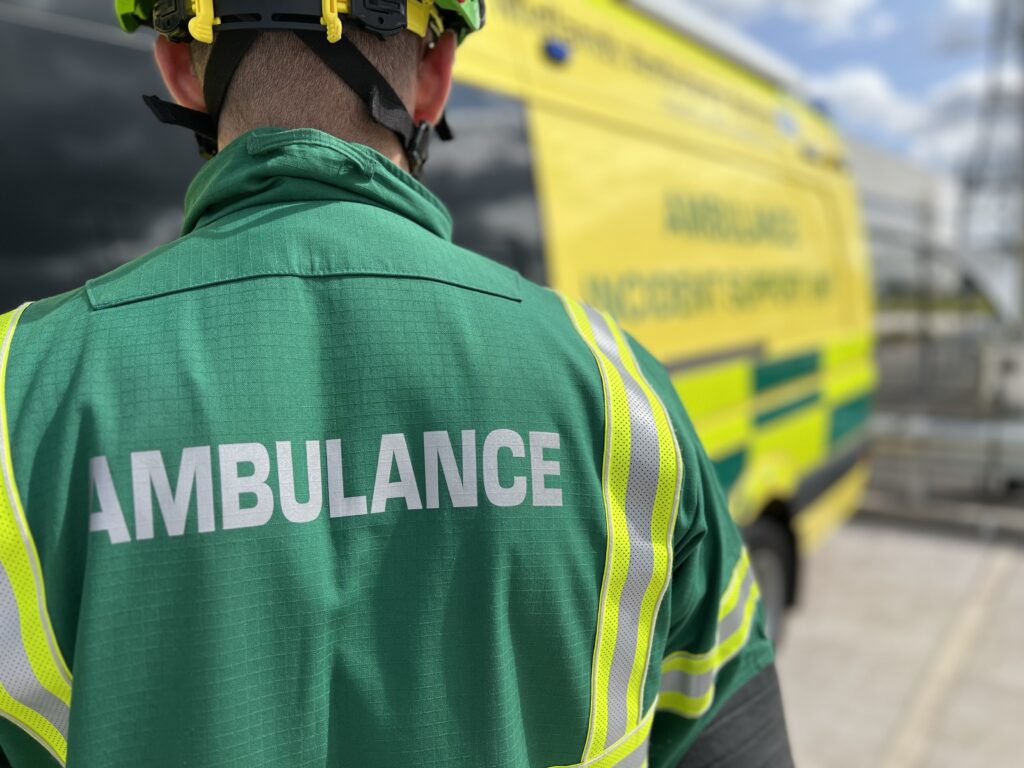
Enhanced Care
Medical Emergency Response Intervention Team (MERIT)
The Trust is commissioned to provide the region’s operational prehospital response to major trauma via our Medical Emergency Response Incident Team (MERIT), a 24/7 regional asset comprising of a prehospital Consultant Doctor and Critical Care Paramedic.
The team will typically respond to serious trauma cases such as stabbings, shootings and serious RTCs, providing advanced care to the most critically ill and injured patients that present through the 999 system and are also there to support operational ambulance staff.
Critical Care Paramedics (CCPs)
In addition, the Trust also operates a separate Critical Care Paramedic (CCP) car on a daily basis. Our Critical Care Paramedics are specialists in caring for patients with serious or major trauma, critical or complex acute illness and those requiring resuscitation.
Specialist Paramedics like CCPs play a fundamental role in the delivery of clinical care to patients but also provide advice, support, guidance and development to the wider clinical workforce in relation to patients in their specialism.
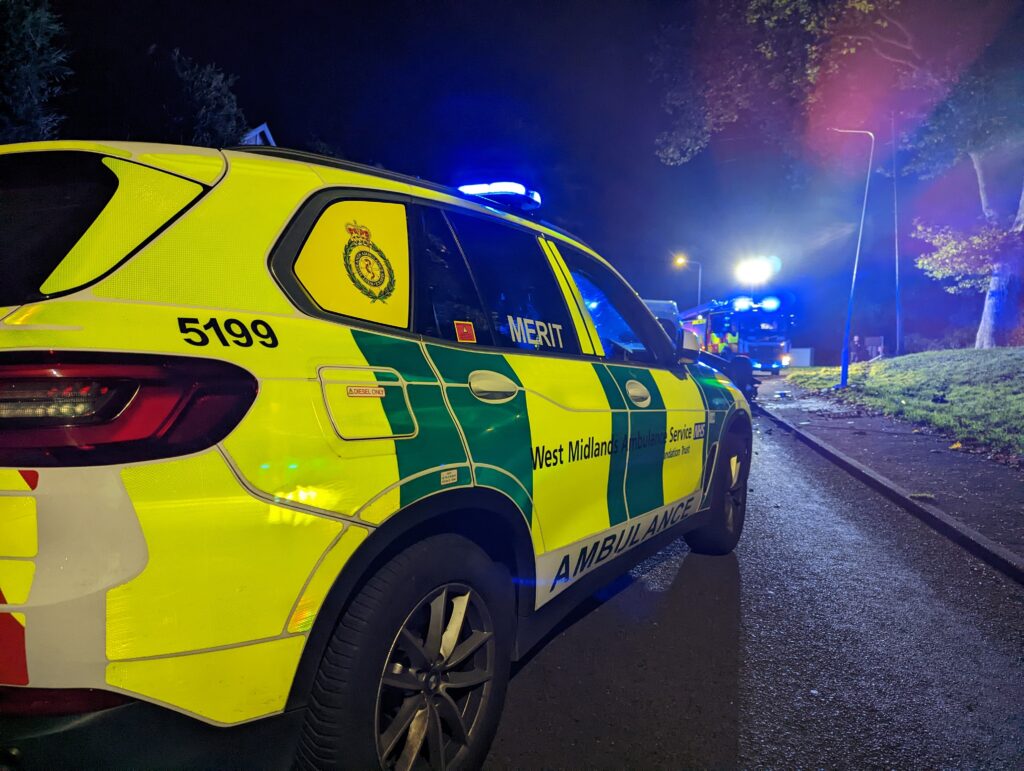
Air Ambulances
WMAS is extremely fortunate to have a wealth of enhanced care teams (ECTs) that respond to cases across the region. We work in partnership with two independently CQC registered air ambulance charities; Midlands Air Ambulance Charity (MAAC) and The Air Ambulance Service (TAAS). Both charities operate both helicopters and rapid response vehicles from four locations across the region on a 24/7 basis.
In addition to this the Trust is supported by several BASICS charities who respond on a voluntary basis to provide enhanced care to patients across the WMAS operational footprint.
These assets are tasked by dedicated and specialist dispatchers in our Emergency Operations Centre in Brierly Hill.
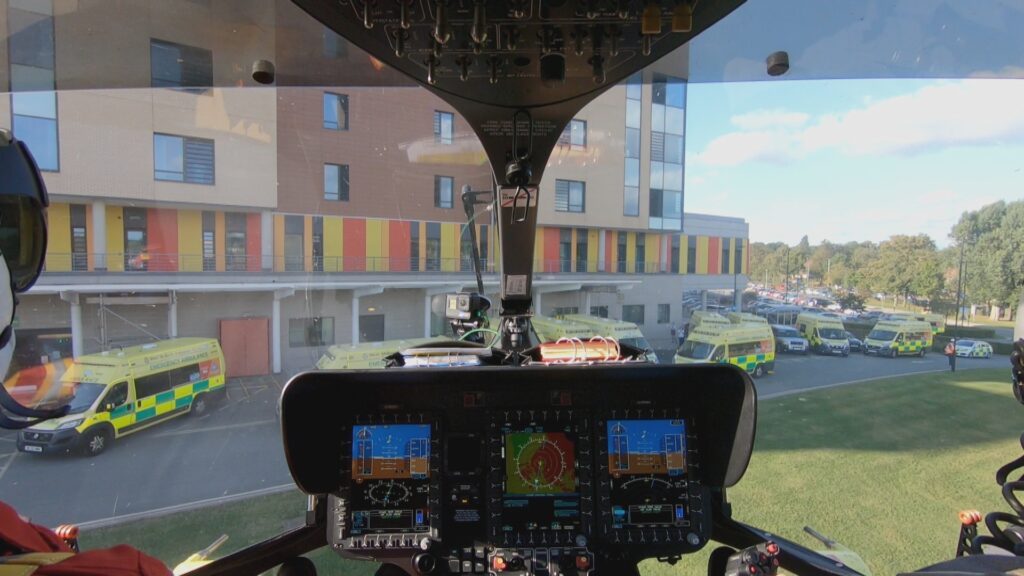
Event Medical Provision
As a service we provide medical cover to a range of large-scale events throughout the Region. We work closely with event organisers during the initial planning phases and provide guidance ensuring the level of medical cover is compliant with national requirements.
We are experienced in planning and running medical provision at specific events, whether pre-planned or not, such as large football matches or sport events, festivals and large-scale protests. Previous high-profile events which we’ve provided medical cover for include Birmingham Commonwealth Games 2022, Operation Rainbow (repatriation of Ukranian children with cancer to the UK), Operation Repat (repatriation of UK citizens from China during COVID-19). The service also provides hyperacute medical transfers of critical patients between hospitals across the UK.
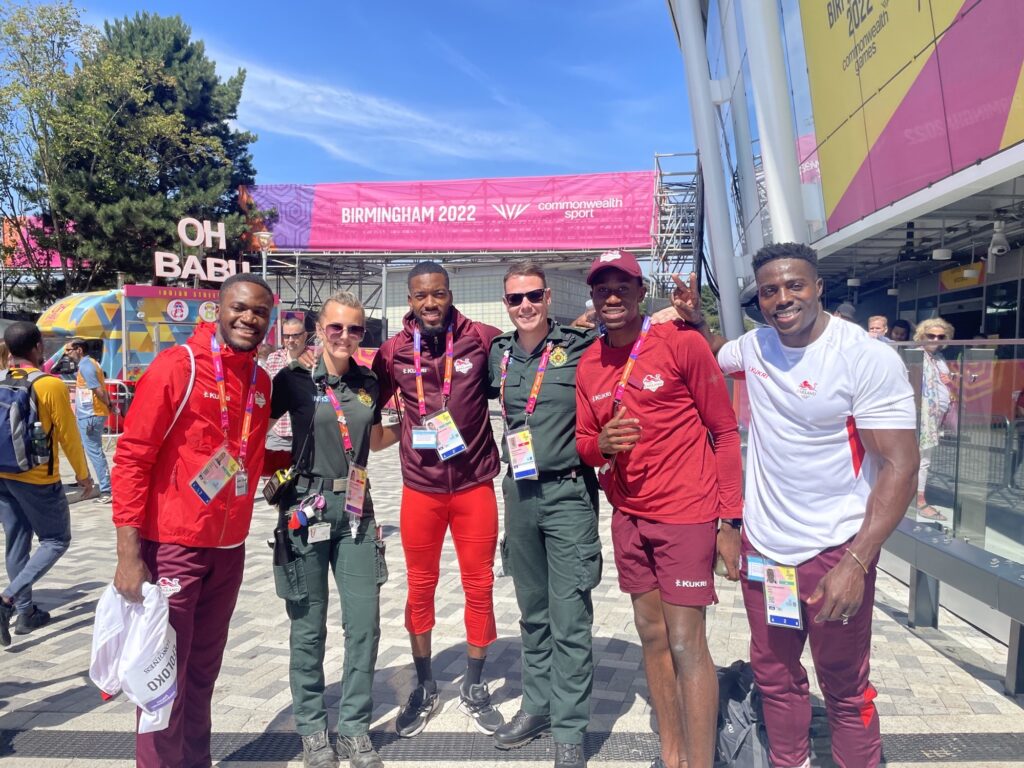
Resilience and Business Continuity
The Trust’s Resilience and Business Continuity team ensures the service is able to operate 24/7, no matter what the challenges we may face such as IT and telephony failure, denial of premises access through environmental disaster, fire and flooding. The Trust has a renowned commitment to training its staff at all levels in incident response and business continuity which the Trust’s Resilience Managers design and deliver.
Community Risk Register
Across the West Midlands, there are four Local Resilience Forums (LRFs): Staffordshire, Warwickshire, West Mercia and West Midlands Conurbation. LRFs are multi-agency partnerships made up of representatives from local public services, including the emergency services, local authorities, the NHS, UKHSA, the Environment Agency and others. These agencies are known as Category 1 Responders, as defined by the Civil Contingencies Act. LRFs are supported by organisations, known as Category 2 responders, such as the Highways Agency and public utility companies.
Each LRF has representation from WMAS embedded along with Community Risk Register (CRR) which enables the community to be better prepared to cope during an emergency and to recover more quickly. The CRR provides information on emergencies that could happen within the each area, together with an assessment of how likely they are to happen and the impacts if they do. These are regularly reviewed ensuring information and data remains current for the ever changing world we live in.
You can find links to the Registers for each LRF here: